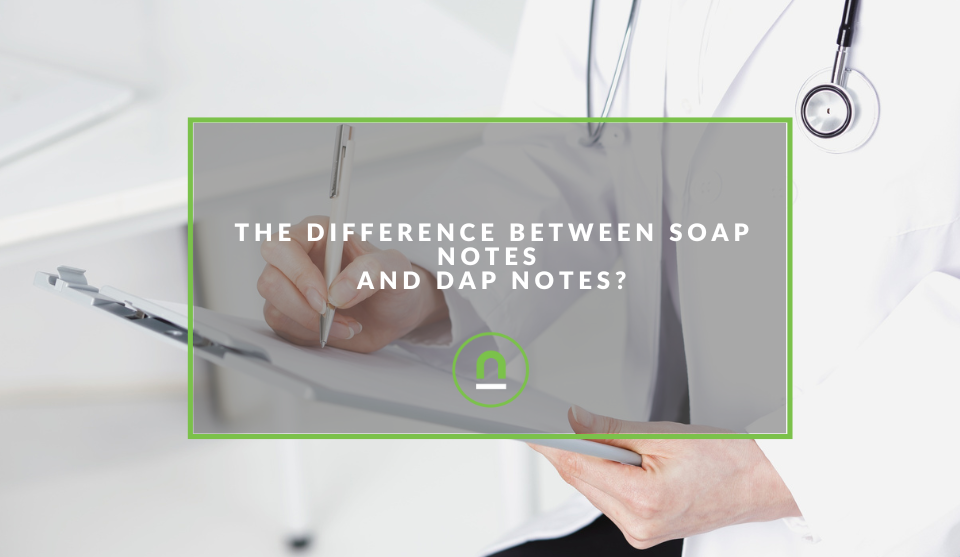Recent posts

nichemarket Advice
The South African VAT Threshold Chokehold
05 December 2025

Doctors Orders
The Difference Between SOAP Notes and DAP Notes
02 December 2025

Petrol heads
Why Load Bin Accessories Make Your Bakkie So Much Easier to Live With
26 November 2025

Alarming
What Is The Part Time Job WhatsApp Scam?
25 November 2025
Popular posts
Extravaganza
Trending Music Hashtags To Get Your Posts Noticed
24 August 2018
Geek Chic
How To Fix iPhone/iPad Only Charging In Certain Positions
05 July 2020
Extravaganza
Trending Wedding Hashtags To Get Your Posts Noticed
18 September 2018
Money Talks
How To Find Coupons & Vouchers Online In South Africa
28 March 2019
Competitive Intelligence in the Pet Industry
10 July 2025 | 0 comments | Posted by Marie Hall in Fur, Fins & Feathers
The pet industry has evolved from a niche sector into a multi-billion-dollar global powerhouse. With a rapidly growing customer base of devoted pet owners willing to spend generously on their furry companions, companies across the board are tapping into this booming market. From organic pet food to high-tech tracking collars, the demand for quality, innovation, and value has never been higher.
To thrive in this competitive and emotionally-driven market, businesses need more than just great products—they need strategic insight.
Enter competitive intelligence (CI), the process of gathering, analyzing, and using information about competitors, market trends, and consumer behavior to make smarter business decisions.
In the pet industry, where loyalty and emotion intertwine with spending, competitive intelligence can be the game-changer for lasting success.
Understanding Competitive Intelligence in the Pet Sector
Competitive intelligence goes beyond spying on competitors. It involves ethical methods of data collection such as market research, customer feedback, social media monitoring, and trend analysis to understand both current and future competitive landscapes.
In the pet industry, this could mean tracking emerging wellness trends, identifying fast-rising startups, or analyzing the impact of regulatory changes on product formulation.
Companies that invest in CI can better position themselves to respond to shifts in consumer behavior, spot gaps in the market, and improve product development.
For instance, the rise of holistic pet care and increasing awareness of chronic conditions in pets have given way to niche markets like dog kidney supplements—a category that has grown steadily as pet parents look for proactive health solutions.
Key Drivers of Competition in the Pet Industry
Several factors intensify competition in the pet sector:
1. Changing Consumer Demographics
Millennials and Gen Z pet owners are driving demand for premium, personalized products. These consumers treat pets as family members, often referring to themselves as "pet parents" rather than owners. This has led to surging interest in boutique products, health supplements, and sustainable pet care items.
2. E-Commerce and DTC Disruption
Online marketplaces and direct-to-consumer (DTC) brands are reshaping the retail landscape. Legacy pet brands must now compete with agile startups that offer subscription boxes, curated food plans, and tailored supplements, all delivered to the doorstep. Competitive intelligence allows legacy players to benchmark their offerings against these emerging challenges and innovate accordingly.
3. Innovation and Differentiation
With so many players entering the market, innovation is crucial. Pet tech, wellness-focused foods, and unique services like pet DNA testing are on the rise. Identifying white space and developing unique selling propositions (USPs) require ongoing intelligence about what competitors are doing—and what they’re missing.
4. Regulatory Pressure and Quality Standards
As the pet health industry becomes more regulated, particularly for supplements and medications, companies need to track legislative changes and ensure compliance. Competitive intelligence helps businesses anticipate regulatory shifts and adapt their strategies to maintain trust and avoid legal complications.
Tools and Techniques for Gaining the Upper Paw
To effectively deploy competitive intelligence in the pet industry, companies should employ a mix of qualitative and quantitative approaches:
- Social Listening: Platforms like Reddit, Instagram, and TikTok are goldmines for understanding what pet owners care about. Monitoring hashtags, forums, and product reviews reveals unfiltered customer opinions and emerging trends.
- Competitor Product Analysis: Examining ingredient lists, pricing strategies, packaging, and customer feedback can reveal insights into competitor strengths and weaknesses. For example, analyzing the success of a best-selling line of dog kidney supplements can shed light on how health-conscious branding, customer testimonials, and educational content drive sales.
- Customer Surveys and Feedback: Engaging with customers directly through surveys or post-purchase feedback helps businesses understand what matters most to pet parents—and what gaps exist in current offerings.
- Market Benchmarking Reports: Subscribing to industry-specific research, such as pet food trend reports or supplement efficacy studies, provides context to market moves and future opportunities.
- Patent and Trademark Tracking: Observing new filings can alert companies to upcoming product launches or innovations from competitors before they hit the shelves.
Case Study: Health & Wellness as a Strategic Differentiator
One of the most compelling areas where competitive intelligence is transforming the pet industry is the health and wellness niche.
Brands like Hill’s, Zesty Paws, and NaturVet have tapped into the health-conscious pet owner segment with targeted marketing and scientifically backed formulations. Among these, dog kidney supplements have become a spotlight category, especially for aging dogs or breeds prone to kidney issues.
By analyzing customer concerns through vet forums, search engine trends, and customer reviews, smart companies identified an unmet need for supplements that not only treat but also prevent kidney conditions. Those that moved quickly to introduce natural, vet-approved formulas with clear benefits gained an early-mover advantage and customer trust.
The Future of CI in the Pet Space
As the pet industry continues to grow—projected to reach over $500 billion globally by 2030—the role of competitive intelligence will only become more critical.
Artificial intelligence and machine learning are beginning to augment traditional CI tools, offering real-time analysis and predictive capabilities. Businesses that embrace these technologies will be better equipped to forecast demand, pivot during disruptions, and maintain customer loyalty.
Moreover, as sustainability and transparency become standard consumer expectations, CI will help brands authentically align with these values while outperforming less agile competitors.
Perfect Paw-sitioning
“Paw-sitioning” for success in the pet industry is no longer just about offering cute packaging or catchy names. It’s about understanding the broader market, reading the emotional pulse of pet owners, and staying several steps ahead of the competition.
Competitive intelligence equips pet brands with the insights needed to innovate with purpose, connect with customers meaningfully, and build lasting market relevance.
Whether you're developing next-gen pet food, launching a new line of dog kidney supplements, or creating an app to track pet health, your path to success starts with one powerful asset: knowing your competitive landscape inside and out.
Tell us your story
Would you like to write for a nichemarket just like Marie does? Find out how to submit a guest post, and when you're ready, you can contact us.
Are you looking to promote your business?
Pet businesses can create a free business listing on nichemarket. The more information you provide about your business, the easier it will be for your customers to find you online.
Registering with nichemarket is easy; all you will need to do is head over to our sign-up form and follow the instructions. If you require a more detailed guide on how to create your profile or your listing, then we highly recommend you check out the following articles.
Recommended reading
If you enjoyed this post and have time to spare, why not check out these related posts and dive deeper down the rabbit hole that is being a pet owner.
- Using Cannabis Oil for Dogs
- Which Diet Is Best For Your Dog
- Pet-Friendly Campsites In The Western Cape
- Where To Get Pet Insurance In South Africa
- Do's & Don'ts For Keeping Your Pet Safe During Guy Fawkes
- 4 Complete Nutrition and Diet Guides for Your Senior Dog
- Tick-Borne Diseases Pet Owners Should Know About
- 7 Irresistible Natural Dog Foods
You might also like
Where Press Releases Live In An Age of AI
21 November 2025
Posted by Che Kohler in nichemarket Advice
How the press release landscape will be affected by the move to AI overviews in search, users moving to LLMs for information and AI summary tools on ...
Read moreWhy Load Bin Accessories Make Your Bakkie So Much Easier to Live With
26 November 2025
Posted by Jasper J in Petrol heads
A look at how to get the most out of your bakkie, keep it protected as it works and why load bin accessories make your bakkie so much easier to live ...
Read more{{comment.sUserName}}
{{comment.iDayLastEdit}} day ago
{{comment.iDayLastEdit}} days ago
 {{blogcategory.sCategoryName}}
{{blogcategory.sCategoryName}}

